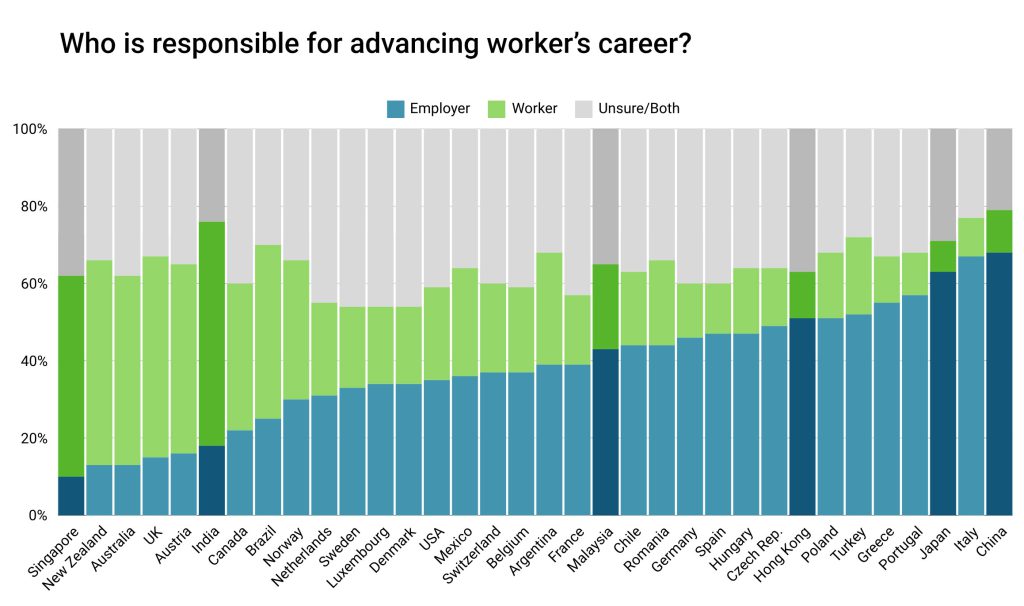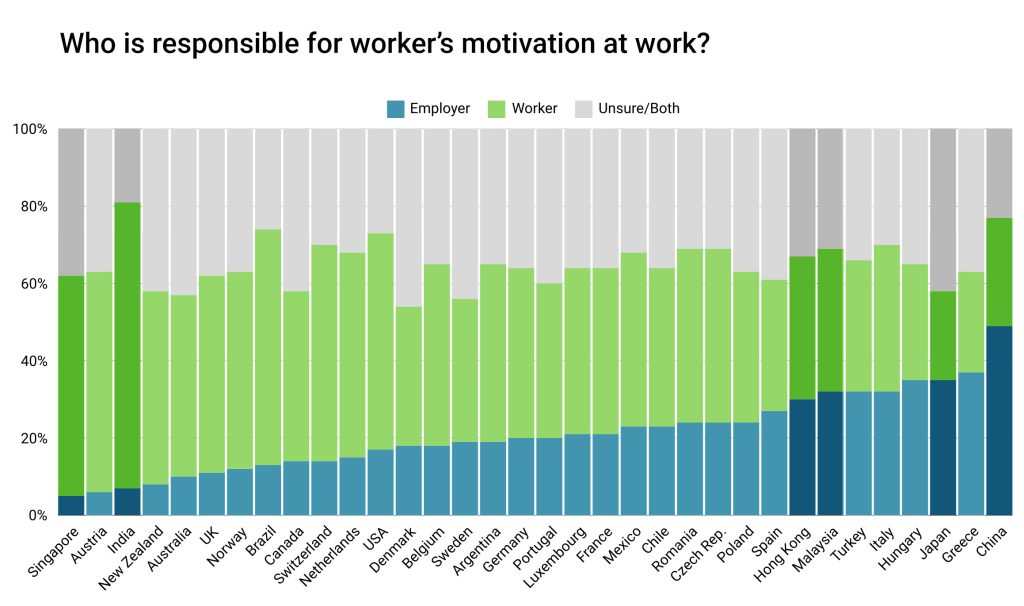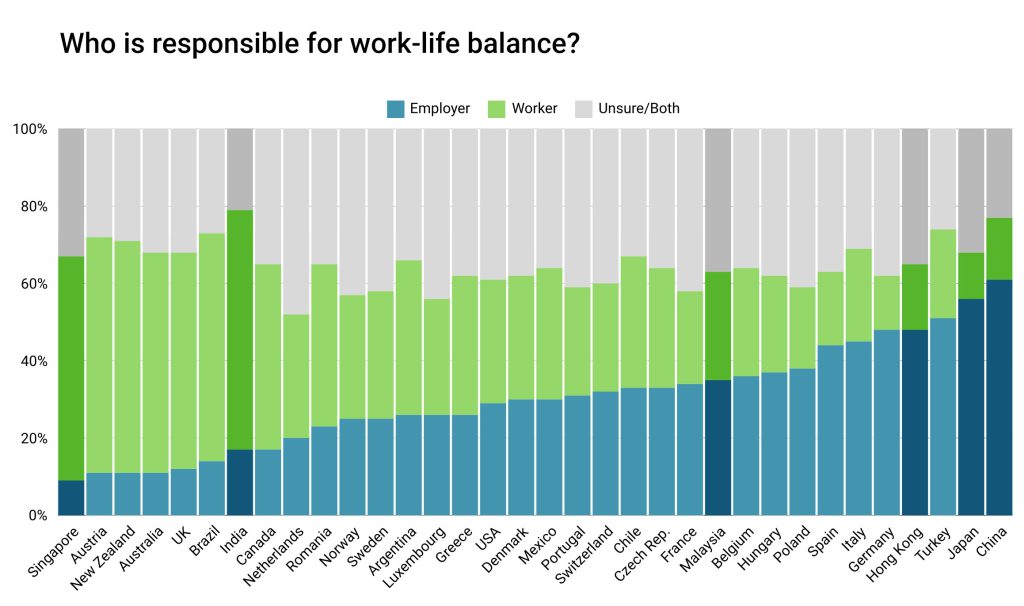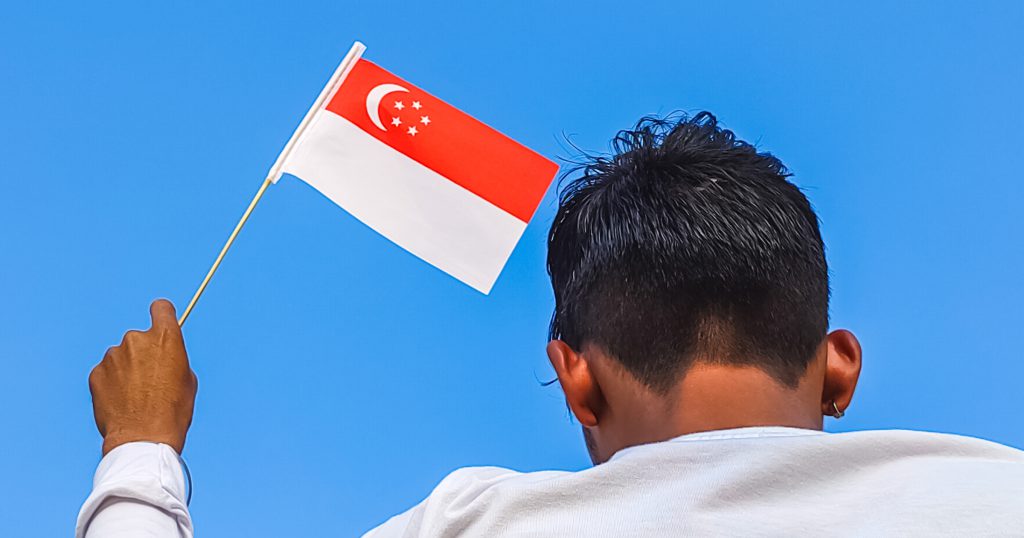Disclaimer: Unless otherwise stated, opinions expressed below belong to the author. Data is sourced from Randstad’s Workmonitor 2024 survey.
According to preliminary results of a recent Employer Brand Research survey by Randstad, as many as 35 percent of Singaporeans would like to switch jobs. Of these, 41 percent hope for a better work-life balance, closely followed by compensation (36 percent) and better career opportunities (33 percent).
However, to really understand the driver behind their search for a new employer we have to look into an earlier report by Randstad, the Workmonitor 2024, published in late March, which reveals and compares the different ways workers around the world think about their role at work, and the division of responsibilities between workers and employers.
It makes for a very interesting reading as it appears to thoroughly debunk many myths circulated about Singaporean workers.
Not so Asian after all
Let’s start by addressing the controversial title — what does “Asian” even mean? The continent is huge, after all. Technically Arabs or Turks are no less Asian than Mongolians, Japanese or the Chinese.
My focus is on East Asians, who hail from Confucian societies and are believed to have similar work ethics.
In fact, Singaporeans appear to have long believed that of themselves. Local working culture is often described as more collectivistic than individualistic, where creativity and independence are allegedly frowned upon, and the nails that stick out are hammered down.
Of course, the city-state is multicultural, but given that around 75 percent of the local population is of Chinese descent, you would expect this to show up in statistics.
Well, then, let’s take a closer look.
First of all, who do Singaporeans believe is responsible for advancing a worker’s career? The individual or his employer? (other Asian countries in the survey are highlighted for comparison)

It turns out that Singapore is not only not close to Confucian nations of East Asia — it’s their polar opposite.
Only 1 in 10 Singaporeans believe their career is influenced by the employer more than themselves, in stark contrast to an astonishing 68 percent in China, 63 percent in Japan and, also a big surprise, 51 percent in Hong Kong, which is often compared to Singapore.
Even in Malaysia, which has a close mutual history with the city-state, about twice as many people believe their future depends on their company, not their own efforts.
The only other Asian outlier is India, with which Singapore appears to have much more in common than other countries it is typically associated with.
But this is not all—it ranks among the nations of the Anglosphere, like Australia, New Zealand, and the UK itself. The United States of America, often hailed for its freedom-loving individualism, is only in the middle of the pack, with fewer people believing their future depends on them than their employers.
Is the American Dream dead?
Let’s move to another question: who should motivate the worker?

And again, Singapore is an outlier, with just 5 percent of local respondents putting the responsibility on the employer.
In truth, most surveyed employees globally recognise that they should work on their motivation to do their jobs well — although, again, not in China or Japan, and only a small majority in Malaysia or Hong Kong, long seen as a beacon of commerce and one of the freest economies in the world.
Once more, Singapore is accompanied by India, New Zealand, Australia, and the UK, among others.
If that’s not enough, however, here’s a third one: who is responsible for work-life balance?

This is a triple whammy. Once more Singapore is at the extreme end of the spectrum, with just 9 percent of local workers looking to their bosses for a better balance between their job and personal life, while China, Japan and Hong Kong are on the opposite end, expecting superiors to plan their lives for them.
Even bearing in mind that Singapore is not ethnically homogeneous, the differences are just too huge to be ignored. It outranks not only other Asian nations but Western ones as well.
It’s not about just a few percentage points here and there but the widest gulf in the entire survey.
Anglo-Saxons of Asia?
What could explain such a huge difference? Are Singaporeans simply affected by their heritage as a former British harbour, having spent decades under foreign laws and customs, today finding themselves in the same intellectual category of self-responsible individuals as Australians, New Zealanders and the British themselves?
This seems plausible, looking at the proximity between all of the countries in the survey, until we consider the case of Hong Kong.

The city had spent far longer under direct British management than Singapore and yet is clearly closer to the Chinese mainland than the Lion City.
It seems that the answer is more complex and might remain highly speculative forever.
It may be that Singaporeans had to embrace the self-resilience while being raised in a tiny state that could only count on itself surrounded by largely uncooperative, and occasionally hostile, neighbours.
Unlike Hong Kong, which had been merely a gateway for foreign business into China, independent Singapore was forced to open itself up to every willing foreign investor or merchant to find relevance and survive.
It’s a truly international hub whose success is entirely self-made.
This, coupled with the British heritage in law, education and language, could have made Singaporeans even more independent than the original founders of the 19th-century port.
Raised under the rigours of compulsory National Service, it wouldn’t be surprising that the mantra of having to do everything yourself — including dying for your country if necessary — is carried over to the workplace.
Do or die.
Shy-apore
A certain downside of this model is that Singaporeans are also taught that the city-state is nothing more than a Little Red Dot — a small, inconsequential speck on the map. And that, too, seems to affect their judgement of themselves.
So, they appear to be responsible, individualistic and ambitious, but also uncertain of their skills. When an opportunity presents itself, Singaporeans may be very kiasu but might otherwise avoid standing out, voicing opinions, or even believing in themselves.
It isn’t just pure conjecture, as a recent PISA study for 15 year olds has shown. Singaporean teenagers took the first spot globally in a test of creative thinking — debunking the myths of being merely book smart and mindlessly repeating facts and figures useful on tests but not in real life.

However, they did fall behind the OECD average in confidence in their creative skills (64 percent vs. 73 percent). It would not be surprising if this percentage trended down with age, given the often unfairly disparaging opinions about the abilities of the local workforce.
It turns out that instead of collectivistic, conservative groupthinkers, Singaporeans are just shy but creative, self-reliant individualists who largely believe their lives are in their hands, decisively bulldozing every myth peddled about them in the past.
Singapore might be in Asia but its people have their own, unique mindset, which shouldn’t be ignorantly lumped together with anybody else.
Unfortunately, one thing that Singaporeans might not do, is tell you about it. And that could be the only thing that needs to change.










